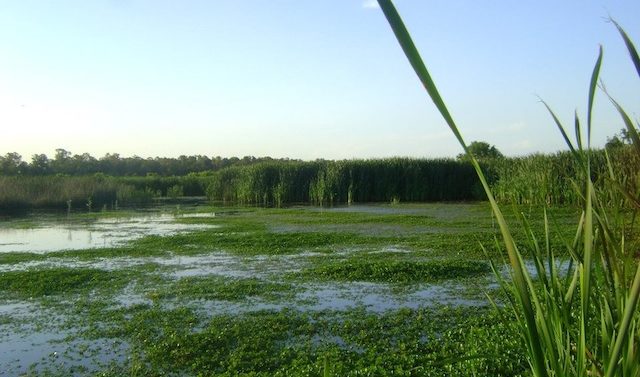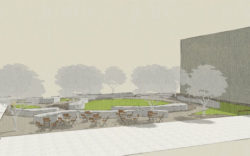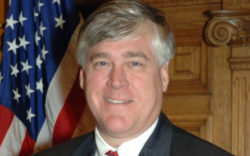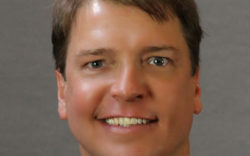The longtime desires of local environmentalists (including some on the commission) to increase pond and wetland protections within the county are being worked out in deliberate detail by a panel that includes business and real-estate representatives and conservation experts and is chaired by ACC Commissioner Kelly Girtz. It has met several times to hear presentations on legal and technical issues, which can be complex: How do you define a wetland, for example, even when it may be dry in times of low rainfall? How do you limit disturbance of ponds or wetlands (or require undisturbed buffers around them to filter rainwater runoff) without encroaching on private property rights?
State law already requires a 25-foot undisturbed buffer around rivers, ponds and major streams; ACC increased that protection a decade ago to 75 feet for rivers and streams, but not for ponds. While wetlands are protected under federal legislation, no buffers are required beyond the wetlands themselves. Courts are wrangling with whether wetlands are “waters of the state” and subject to the 25-foot buffer.
Other local governments are increasingly protecting their wetlands, UGA School of Ecology’s Laurie Fowler, an environmental attorney, told the committee last month. They are passing buffer ordinances or purchasing development rights in order to protect drinking water sources. “In my mind, whatever we can do to protect wetlands makes sense,” she said. “Nothing beats a natural wetland” to filter and protect water resources.
Most of ACC’s wetlands (nearly 4,000 acres) are already protected under the existing ordinances; the committee’s negotiations are about protecting the remaining 400 acres or so. That could get complicated if a homeowner wants to build a storage building in a proposed wetland buffer, or an industry wants to expand to an area with a wetland in the middle of it. The committee is looking at allowing county staffers to approve some variances or trade-offs on the spot, without time-consuming application to the Hearings Board.
“We have tried so hard to bring in industry” for the past decade, said committee member and attorney Mike Morris. “It’s just not good in my eyes” to add hurdles to industrial development. But developers are usually willing to follow the rules, as long as they know what they are, he added. “When you have all these requirements, and there’s uncertainty, [industries] go away,” added committee member Grant Whitworth, a commercial real-estate agent.
Some gaps in buffers “aren’t a big deal,” said Seth Wenger of UGA’s School of Ecology at an earlier meeting; far worse are filling in wetlands, spraying pesticides and fertilizer nearby, burying (“piping”) streams and dumping waste into streams or wetlands. Former ACC commissioner Carl Jordan is among those who have wanted to expand wetlands protections beyond the compromises made in the original local ordinance. “Finally, there seemed to be enough votes on the commission to get it done,” and the committee was appointed to hash it out, he told Flagpole.
Like what you just read? Support Flagpole by making a donation today. Every dollar you give helps fund our ongoing mission to provide Athens with quality, independent journalism.










